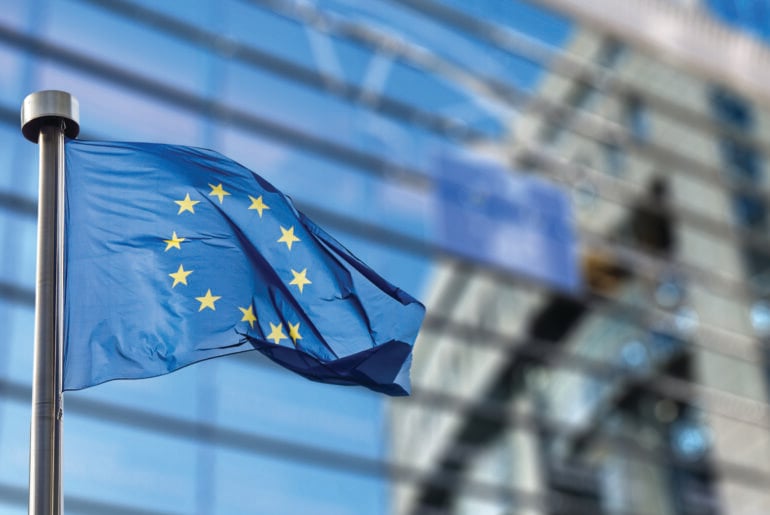The EU-U.S. Data Privacy Framework is now fully effective. U.S. companies that participate in the DPF are deemed to provide an adequate level of protection for personal data transfers received from the EU within the meaning of the EU General Data Protection Regulation. Some companies may be asking why this matters. Why should my company join DPF? There is no one-size-fits-all answer to this important question. Companies differ with respect to business operations, risk tolerance and existing…
*Article originally posted on Law.com authored by Cassandre Coyer at LegalTech News.* This summer marked a key development in the history of data transfers between the U.S. and European Union when the European Commission adopted its adequacy decision for the EU-U.S. Data Privacy Framework after two prior invalidated agreements. But whether that milestone is translating to a wave of companies registering to get certified under the new framework is less apparent. Given the looming possibility of a Schrems…
With the passage of the Data Protection (Adequacy) (United States of America) Regulations 2023 (Adequacy Regulation), the UK government has made good on its intention to establish a data bridge with the US. This follows the commitment-in-principle reached by President Joe Biden and UK Prime Minister Rishi Sunak on June 8 2023, when the EU-US Data Privacy Framework (“DPF”) was still being evaluated by the European Commission under the EU GDPR. With the DPF’s completion and…
The European Commission’s adequacy decision for the EU-US Data Privacy Framework (the ‘Framework’) still has a significant beneficial impact for companies even if they continue to rely on the EU Standard Contractual Clauses (‘SCCs’) for transatlantic data transfers instead of participating in the Framework due to the findings in the decision regarding updated US laws and practices. The decision confirms that the EU Commission considers the designation of the EEA as a qualifying organisation under…
On July 10, 2023, the European Commission adopted its adequacy decision for the EU-U.S. Data Privacy Framework (“DPF”). US companies that participate in the DPF will be deemed to provide “adequate protection” under Article 45 of the EU General Data Protection Regulation (“GDPR”) for personal data transfers received from the European Union (“EU”) and European Economic Area (“EEA”). Why did the EC need to adopt the adequacy decision for the DPF? As we have previously written, the…
The US Office of the Director of National Intelligence (“ODNI”) announced today that it has fully implemented new safeguards under Executive Order 14086. See INTEL – ODNI Releases IC Procedures Implementing New Safeguards in Executive Order 14086. These steps clear the path for the European Commission to adopt the draft “adequacy decision” for cross-border data transfers pursuant to the EU-U.S. Data Privacy Framework. By way of brief background, in July 2020, the Court of Justice…
In brief On February 28, 2023, the European Data Protection Board (“EDPB”) published its non-binding opinion on the European Commission’s draft adequacy decision for the EU-U.S. Data Privacy Framework (“DPF”). As we have previously written, the DPF is intended to re-establish one of the legal mechanisms for transfers of personal data from the European Union (“EU”) to the U.S. The DPF replaces the EU-U.S. Privacy Shield (“Privacy Shield”), which the EU Court of Justice (“CJEU”)…
28 January 2023 is Data Protection Day (or Data Privacy Day outside of Europe), which marks the anniversary of the Council of Europe’s Convention 108. To mark Data Protection Day 2023, Baker McKenzie’s Global Data Privacy and Security Team is pleased to present this special edition update of key data protection and privacy developments and trends across the globe, as well summarising future legislative changes, predictions, and enforcement priorities to look out for during 2023.…
On December 13, the European Commission (“EC”) announced a draft decision on the adequacy of the U.S data protection regime to protect the personal data of European Union (“EU”) residents, the EU-U.S. Data Privacy Framework (“DPF”). The DPF, which was initially announced in March 2022 as a political agreement between the EU and the U.S., and then bolstered by President Biden’s Executive Order (“EO”) in October 2022, opens the door for an EU-U.S. data transfer…
Key changes are updates to the ICO’s existing guidance on international transfers to include a new section on transfer risk assessments, and an accompanying TRA tool.









